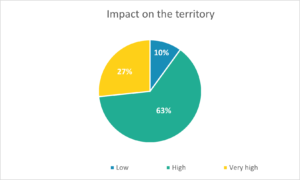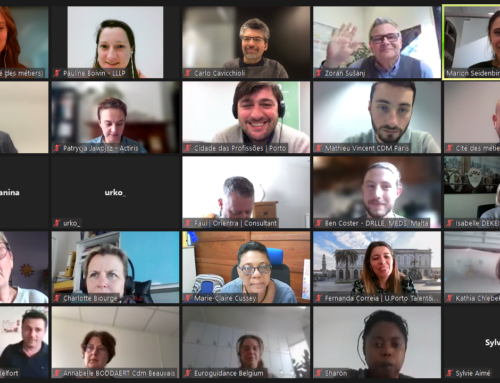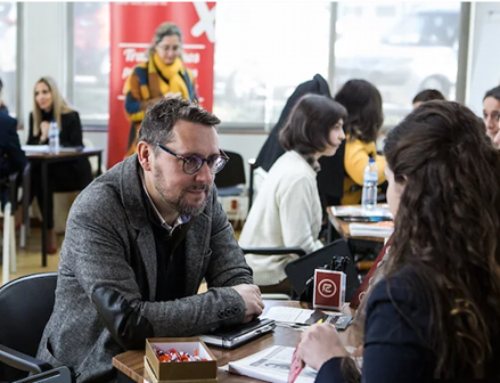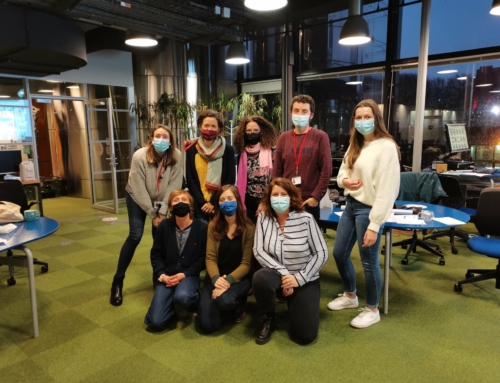Implementing multi-stakeholder cooperation and partnership is not always innate for managers and other staff involved. The path for successful win-win relationships is often crossed with hesitations and uncertainties on the way to go and solutions to bring the best out of it. In Keep In Pact, the six partner organisations, who all have extensive experience in multi-stakeholder cooperation, felt there was a need to design a Guide that gives recommendations in a systematised fashion for setting up and running of these multi-actors partnerships.
As we can humbly acknowledge that even ourselves do not have all the clues, we thought of asking a larger pool of stakeholders in the field what they consider is key. To do so, Keep In Pact partners launched an EU-wide survey from July to October 2020 and collected over 30 answers from 9 EU countries (France, Portugal, Italy, Croatia, Germany, Swiss, Lithuania, United Kingdom). This is the first survey launched in the frame of the project. A 2nd survey will be running from May and June 2021 to collect more answers in order to refine the Guide which will be finalised at the end of 2021.
This Guide for building up multi stakeholder partnerships is designed for all managers working in the field of career guidance whether they work in higher education institutions, career guidance centres, municipalities, public employment services, non-profits, adult education centres, social partners, or companies.
Do you qualify as a career guidance centre? Are you registered in our European map? If not, you can do so here.
First main findings
- 61% of respondents have dedicated staff for multi-stakeholder cooperation and partnership in their organisation.
- Multi-stakeholder partnerships may take very diverse forms: projects (eg European projects), public-private partnerships, students’ placement in mobility and work-based learning (very frequent in the higher education sector), internal multi-stakeholder governance models, ad hoc initiatives (eg information day, career forums), at the level of the entire organisation or affecting specific departments (eg public information service).
- The added value of involving two or more partners in career guidance is multi-fold :“mutually benefits, win-win, essential, learning, leading to success, new competences, exchange, strong social impact, resources coupling, and service improvement”.
- Respondents reflected on the importance to highlight the rights and duties of each party, to remain flexible as to ensure a long term relation, to stress regularly the mutual interest in the partnership or showing creativity in order to keep attractiveness for all sides on the long run.
- While trust is an essential part of a partnership, some tools may facilitate an effective and long lasting cooperation, among which,
 communication, frequent meetings, development of innovative actions enriching and stimulating to the projects as well as the partners or share knowledge and values.
communication, frequent meetings, development of innovative actions enriching and stimulating to the projects as well as the partners or share knowledge and values.- When asked about the impact of the partnership on the territory, 90% of respondents considered it to be “high” or “very high”.
By offering insights into the design, implementation, maintenance and evaluation of multi-stakeholder partnerships in career guidance, the very people who are working in the field helped us enrich the recommendations in our future Guide.
In this document we will outline:
- how to build a partnership from scratch: giving ideas on how to identify partners, what criteria to set to choose them, what is the process leading to the creation of such a partnership, etc
- how to sustain / maintain a partnership over time: the process of cooperation and importance of communication among partners, what sort of (formal) agreements do partners have settle among them, key success factors for a successful partnership (eg usefulness, social relationships) as well as the main challenges and risks faced by the partnership (eg horizontal governance among partners, different work cultures) and how to address them.
- detailed recommendations for the promotion and visibility of the partnership within partner organisations as well as outside to the broad career guidance community: general public, public authorities, business sectors, education and training providers, civil society etc.
- And finally, we will present useful tools for the evaluation of the partnership, to help in improving its quality and implementation.
Do you want to know more about the upcoming Guide or any other project results? Ensure you are kept updated by registering to our newsletter on career guidance here.







